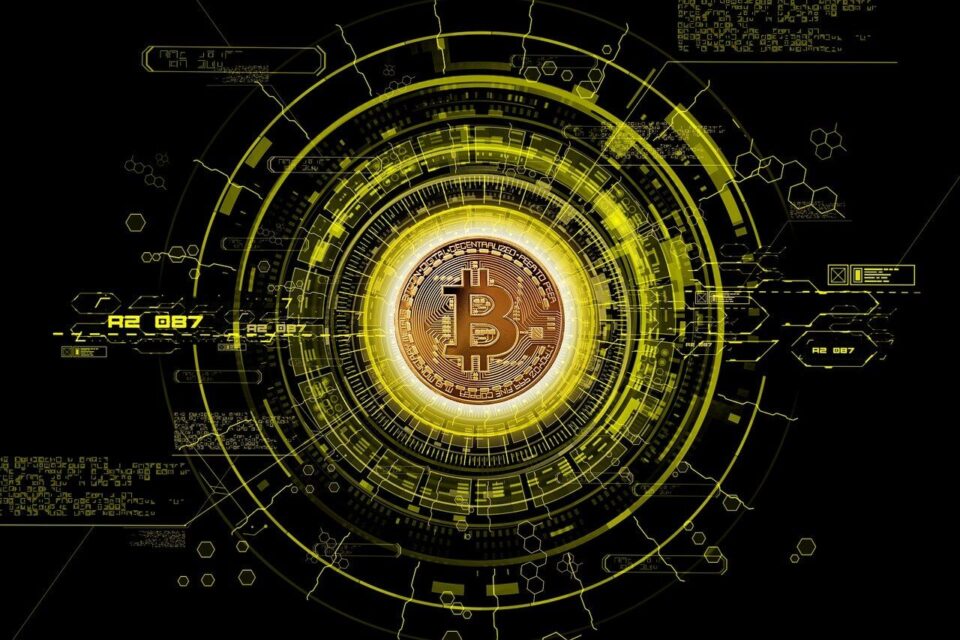Over the last ten years, the blockchain ecosystem has seen the birth of cryptocurrencies and game-changing breakthroughs. Traditional banking systems are about to undergo a change thanks to this rapidly growing environment. Important developments like El Salvador’s adoption of Bitcoin as legal cash and Canada’s approval of the first Bitcoin exchange-traded fund (ETF) demonstrate how cryptocurrencies are becoming more and more widely accepted as reliable investment instruments. The use of smart contracts to create decentralized financial (DeFi) services further strengthens the blockchain technology’s bright future by providing open, self-governing, and transparent software solutions. From the widespread adoption of cryptocurrencies to the rise of decentralized applications and the emergence of the metaverse, these seven trends are set to shape the blockchain and crypto sphere in the coming years.
- Mainstream Acceptance of Cryptocurrencies:
Cryptocurrencies are rapidly gaining acceptance as viable investment tools and alternative forms of payment. The recent recognition of Bitcoin as legal tender in El Salvador and the approval of Bitcoin exchange-traded funds (ETFs) in Canada demonstrate a growing embrace of digital currencies worldwide. This mainstream acceptance will further fuel the expansion of the crypto market and drive innovation in blockchain technology.
- Decentralized Finance (DeFi) and Smart Contracts:
Decentralized finance (DeFi) platforms are revolutionizing traditional financial services by leveraging smart contracts on blockchain networks. These contracts enable automated, transparent, and secure transactions, removing the need for intermediaries. With DeFi, individuals can lend, borrow, save, and trade digital assets without relying on centralized institutions like banks. This democratization of financial services empowers users globally, unlocking new opportunities for economic growth.
- Non-Fungible Tokens (NFTs) and Digital Asset Ownership:
The explosive rise of non-fungible tokens (NFTs) has captured the world’s attention, showcasing the potential of blockchain technology beyond currency. NFTs represent unique digital assets, such as artwork, collectibles, and virtual real estate, enabling verifiable ownership and provable scarcity. As NFTs gain prominence, they will continue to disrupt industries like art, gaming, and entertainment, offering new revenue streams for creators and transforming the way we perceive and interact with digital content.
- Transition to Sustainable Blockchain Solutions:
With increasing concerns about the environmental impact of blockchain networks, the industry is actively transitioning to more sustainable solutions. Ethereum, the backbone of many decentralized applications, plans to shift from energy-intensive Proof of Work to the environmentally friendly Proof of Stake consensus mechanism. This transition will significantly reduce the carbon footprint associated with blockchain operations, making it more environmentally sustainable and aligning it with the values of conscious investors.
- Enhanced Privacy and Security Measures:
As blockchain technology matures, privacy and security measures are evolving to safeguard user data and transactions. Innovations such as zero-knowledge proofs, homomorphic encryption, and multi-party computation are being implemented to enhance privacy while preserving transparency. Additionally, advancements in decentralized identity solutions are empowering users to have greater control over their personal information, mitigating the risks of data breaches and identity theft.
- Integration of Blockchain with Internet of Things (IoT):
The convergence of blockchain and the Internet of Things (IoT) holds immense potential for seamless data exchange, increased transparency, and enhanced security. By leveraging blockchain’s immutable ledger and smart contracts, IoT devices can autonomously record and verify data, creating tamper-proof records and establishing trust among connected devices. This integration will unlock new business models, optimize supply chain management, and enable secure peer-to-peer transactions in the IoT ecosystem.
- Rise of the Metaverse and Virtual Economies:
The metaverse, a virtual realm where users can interact, transact, and create digital experiences, is rapidly gaining traction. Blockchain technology, combined with NFTs, is at the core of building immersive metaverse experiences. Virtual economies within the metaverse are emerging, allowing users to buy, sell, and trade digital assets, virtual properties, and unique experiences. As the metaverse expands, it will reshape various industries, from gaming and entertainment to education and commerce, offering limitless possibilities for virtual interactions and economic opportunities.
Future developments in the blockchain and cryptocurrency industries will completely change the way we buy, sell, and interact with digital assets. These developments will help create a more inclusive, open, and decentralized financial ecosystem, from the general acceptance of cryptocurrencies and decentralized finance to the disruptive potential of NFTs and the rise of the metaverse. Adopting these trends would enable people all around the world, democratize access to financial services, and open up fresh opportunities for economic development and innovation in the digital era.



